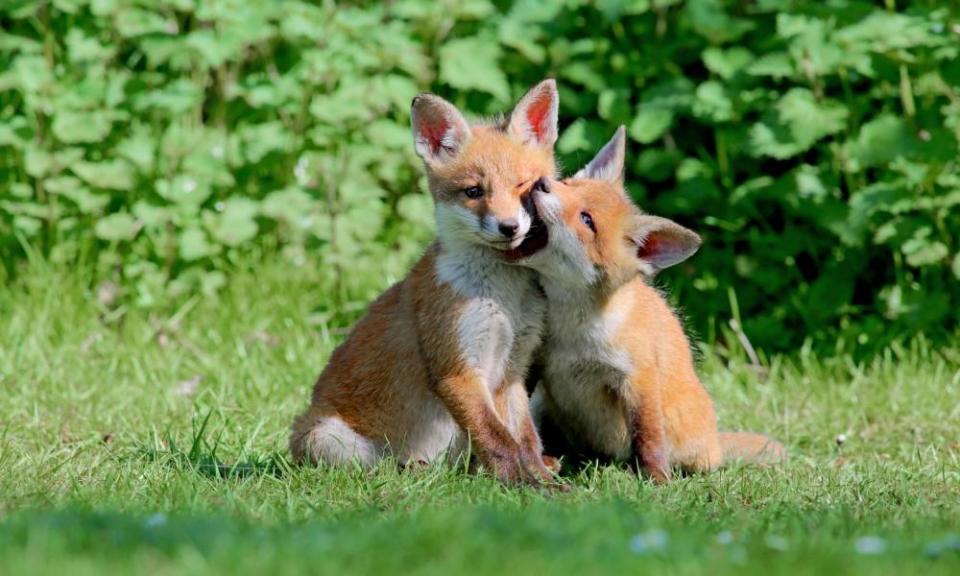On my radar: Lucy Ellmann’s cultural highlights

Born in Illinois in 1956, the author Lucy Ellmann moved to England aged 13 and received an MA from the Courtauld Institute of Art in 1981. Her debut novel, Sweet Desserts, won the Guardian fiction prize in 1988 and she has since published seven more, including Ducks, Newburyport (2019), which consists of eight sentences over more than 1,000 pages. It was shortlisted for the Booker prize and won the Goldsmiths prize and the James Tait Black prize for fiction. Between 2009 and 2010, Ellmann taught creative writing at the University of Kent. Her first collection of essays, Things Are Against Us (Galley Beggar Press, £9.99), is out now.
1. Fiction
Pond by Claire Louise Bennett
Bookshops have been shut, but books have reclaimed a central position in life, amid the reduction in other cultural outlets caused by the plague. Pond is an absolute delight. Funny, tense, eccentric and labyrinthine, these short stories take a highly personal stand on domestic constraints, and cover everything from tomato paste (a two-paragraph story), cows and the narrator’s general contrariness, to the vital aphrodisiac effects of alcohol. It’s poetic and beautiful and surprisingly deep, and unobtrusively leaves you with a strong sense of place: a rented cottage in an Irish village. Exceptional stuff.
2. Comedy
Richard Pryor: Live in Concert (Netflix)

Jeez, Richard Pryor puts other standup comedians to shame. How tame they seem next to his smart, pained, witty reflections. He’s very funny about white people. “I love when white dudes get mad and cuss.” It’s amazing, the way he paints a whole scene for you with nothing but a few choice sound effects, and dramatises it by crawling, running, writhing and mocking the whole damn world. Dogs, deer, machismo, bodily functions, the crunch of leaves in the forest: it all comes vividly to life. He paces the stage as if he really needs to get somewhere. And he gets there.
3. Art
Paul Scott: Scenery, Samplers and Souvenirs (Scottish Gallery, Edinburgh)
Having seen no art for over a year due to Covid restrictions, I noticed this gallery was open and boldly entered, to find Scott’s mended and manipulated blue and white china platters that drip with irony. In Souvenir of Portland Oregon, a bunch of silhouetted militia men tramp along in search of Black Lives Matter protesters. One large plate, imprinted with a photo of young saplings and No Trespass signs, mourns the loss of the American wilderness. Another collaged dish, recrafted using kintsugi “golden repairs” and a Japanese pottery fragment of Hokusai’s wave, questions whether Fukushima itself can ever be repaired.
4. Opera
The New York Met’s labour relations suck – there are constant disputes over outrageous management decisions. Yet they’ve been freakily generous towards their online audience during the pandemic: every day, another free televised Metropolitan opera. Adriana Lecouvreur (backstage shenanigans with Anna Netrebko, the fascinatingly sinister Anita Rachvelishvili and darling Ambrogio Maestri); The Nose (totally hilarious, thanks to William Kentridge’s direction and designs); Philip Glass’s moving Satyagraha; The Marriage of Figaro (with Cecilia Bartoli, a rare treat); Tosca (in which Scarpia, a true villain, meets a swift demise after messing everybody else’s life up); Falstaff (Maestri again)… a feast!
5. Film
Minari (Lee Isaac Chung, 2021)
A bit like Little House on the Prairie but without the good cheer, this survival tale is about a Korean-American family trying to farm in Arkansas. The only other work around is sexing chicks. Great acting, particularly the little boy with the heart defect, and his grandma. It’s unfortunate for the movie that she has to get ill. It’s also not clear what the minari seeds are actually for, besides symbolism. The grandma plants some on the riverbank, where it thrives. Apparently it’s something like watercress. But they never seem to eat it. What that symbolises is anyone’s guess.
6. Nature
Fox cubs

During lockdown, it sometimes feels like the cultural highlight of my week is ordering vegetables online. There’s much to be said for viniculture too. But in the gardens below my flat, a vixen is raising three cubs. These urbanites, unaffected by Covid, seem to be getting a lot more out of city life than I do. The cubs play and romp and snap and chase and roll and wrestle and chomp leaves and study trash and squeeze through tight spots and make strange sounds, all in pursuit of their own impeccable agendas. There is nothing more perfect than a fox cub.


